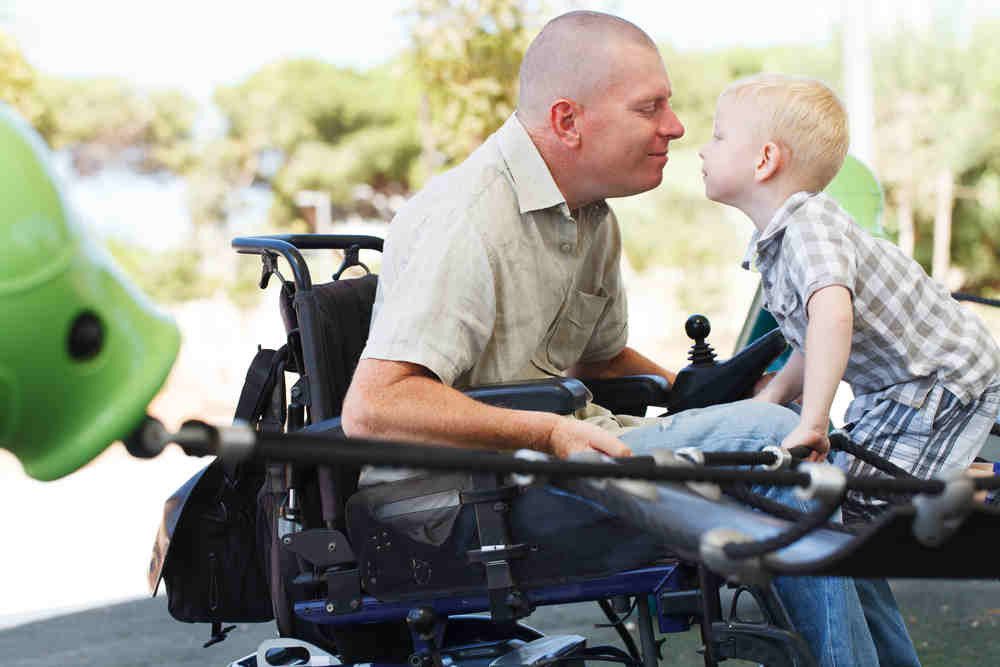Definition
Neuromuscular disease is a broad term that describes various conditions where muscle function is impaired due to issues with the nerve cells that control muscles in the body. The most common symptom of neuromuscular diseases is muscle weakness. There are many types of neuromuscular diseases, including Amyotrophic Lateral Sclerosis (ALS), multiple sclerosis, muscular dystrophy, myasthenia gravis, and spinal muscular atrophy.
Some neuromuscular disorders can be categorized into four major groups, including:
- Motor Neuron Diseases: These conditions, sometimes caused by genetic mutations or unknown factors, involve the gradual dysfunction of motor neurons, the nerve cells that control muscle movement. The most common motor neuron disease is Amyotrophic Lateral Sclerosis (ALS), also known as Lou Gehrig's disease, whose cause remains unknown.
- Neuropathies: In neuropathies, the peripheral nervous system is primarily affected. Some neuropathies include genetic conditions like Charcot-Marie-Tooth disease, uncontrolled diabetes, and autoimmune diseases such as Chronic Inflammatory Demyelinating Polyneuropathy (CIDP).
- Neuromuscular Junction Diseases: In this category, there is a problem at the junction where muscle fibres and motor nerves connect. The most common disease in this category is myasthenia gravis, an autoimmune disorder where the immune system produces antibodies that block the muscles from contracting properly.
- Myopathies: This group includes muscular dystrophies caused by genetic mutations. These diseases lead to the deterioration of muscle tissue, preventing it from functioning properly.
Causes
Most neuromuscular diseases are inherited due to mutations or changes in a patient's DNA. However, they can also be caused by autoimmune diseases, viral infections, hormonal and metabolic disorders, certain medications and toxins, deficiencies in specific substances, or, in some cases, an unknown cause.
Risk factor
Several risk factors can increase the likelihood of developing neuromuscular diseases, including:
- A history of autoimmune diseases
- A family history of neuromuscular disorders
- A history of hormonal and metabolic disorders, such as diabetes, hyperthyroidism, or hypothyroidism
- A history of long-term use of certain medications without proper monitoring
- A history of botulism infection
Symptoms
The symptoms of neuromuscular diseases depend on the specific condition and its severity. Some of the possible symptoms include:
- Muscle weakness
- Muscle cramps
- Muscle stiffness, which can eventually lead to joint and bone deformities
- Muscle pain
- Difficulty breathing
- Difficulty swallowing
- Numbness or tingling
- Double vision
- Drooping eyelids
- Balance problems
Diagnosis
Doctors will conduct a thorough examination, including taking a detailed patient history, performing a physical exam, and ordering additional tests.
The medical history will cover the patient's primary complaint, accompanying symptoms, duration, past medical history, family history, and previous treatments.
The physical examination will assess the patient's general condition, including consciousness, gait, vital signs such as blood pressure, pulse, temperature, and respiratory rate. A more specific neurological examination will assess facial nerve function, muscle strength, balance, motor function, and sensory function.
Additional tests may include blood tests to check for elevated enzyme levels, MRI to examine brain and spinal structures, lumbar puncture to analyze cerebrospinal fluid, EMG (electromyography) to assess electrical activity in muscles, nerve conduction studies to evaluate how well nerve signals travel to muscles, muscle biopsies to examine muscle tissue samples under a microscope, and genetic testing to confirm the presence of genetic mutations if necessary.
Management
Currently, there is no cure for neuromuscular diseases. Research is ongoing into gene therapy and new medications, with the hope of finding treatments that can lead to a cure.
Management of neuromuscular diseases involves close collaboration between neurologists, neurosurgeons, rehabilitation specialists, physical therapists, and other specialists if the patient has other medical conditions.
The goal of treatment is to manage symptoms, slow disease progression, and improve the patient's quality of life. Treatment options may include medications to alleviate symptoms, physical therapy to help regain muscle strength, occupational therapy to assist with daily activities, psychological therapy and counselling for patients and their families to build a strong support system, and surgery to relieve symptoms if necessary.
Complications
Complications of neuromuscular diseases can lead to permanent issues such as reduced mobility, muscle stiffness, and loss of sensory and sensory function.
Neuromuscular diseases can also significantly reduce the quality of life and, in some cases, may be life-threatening.
Prevention
There are currently no specific preventive measures for neuromuscular diseases. However, the following steps can help reduce the risk:
- Regular medical check-ups if you have a family history of neuromuscular diseases.
- Adhering to prescribed treatments and medications if you have any underlying conditions.
- Maintaining a healthy lifestyle with a balanced diet, adequate hydration, regular physical activity, and avoiding smoking and alcohol consumption.
When to see a doctor?
See a doctor immediately if you experience any of the above symptoms, especially if you have a family history of neuromuscular diseases. Consult a neurologist who can guide you through the appropriate diagnostic process.
Looking for more information about other diseases? Click here!
- dr. Yuliana Inosensia
Better Health Channel - Neuromuscular Disorders. (2021). Retrieved 22 September 2022, from https://www.betterhealth.vic.gov.au/health/conditionsandtreatments/neuromuscular-disorders#diagnosis-and-treatment-of-neuromuscular-disorders
Mayo Clinic - Neuromuscular Disease. (2022). Retrieved 22 September 2022, from https://www.mayoclinic.org/departments-centers/neuromuscular-disease-group/overview/ovc-20443670
Morrison, BM. (2016). Neuromuscular Diseases. Retrieved 22 September 2022, from https://pubmed.ncbi.nlm.nih.gov/27704495/
University of Michigan Health - Neuromuscular Disorders. (2021). Retrieved 22 September 2022, from https://www.uofmhealth.org/conditions-treatments/brain-neurological-conditions/neuromuscular-disorders








